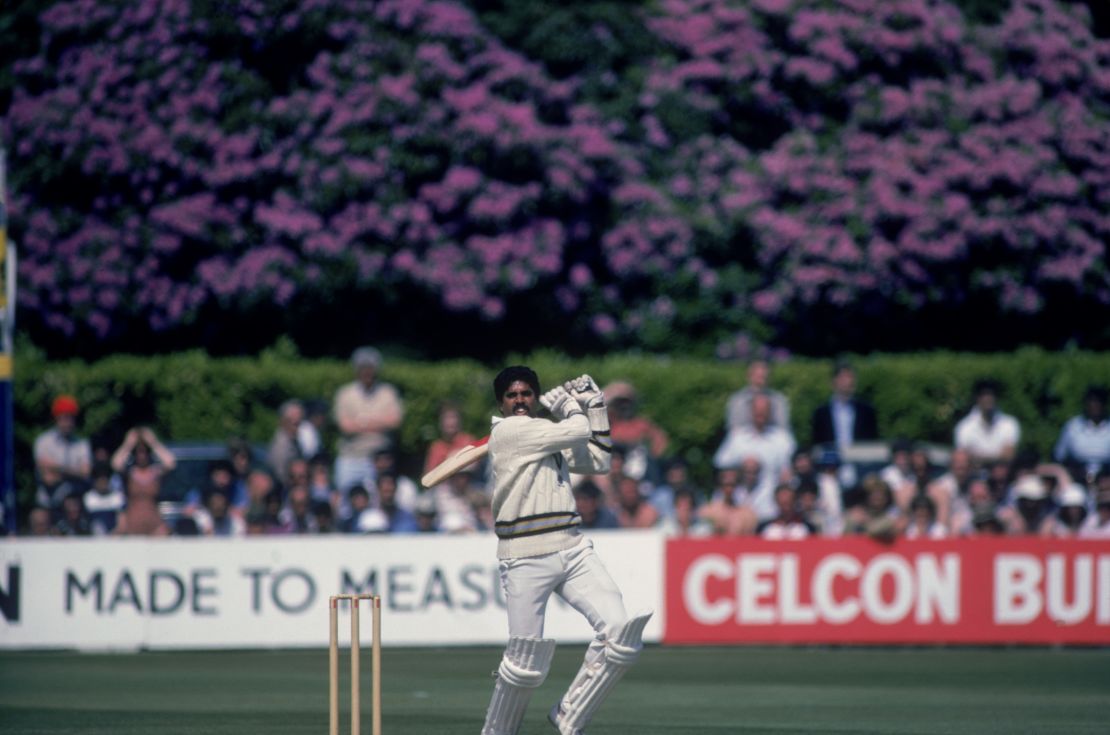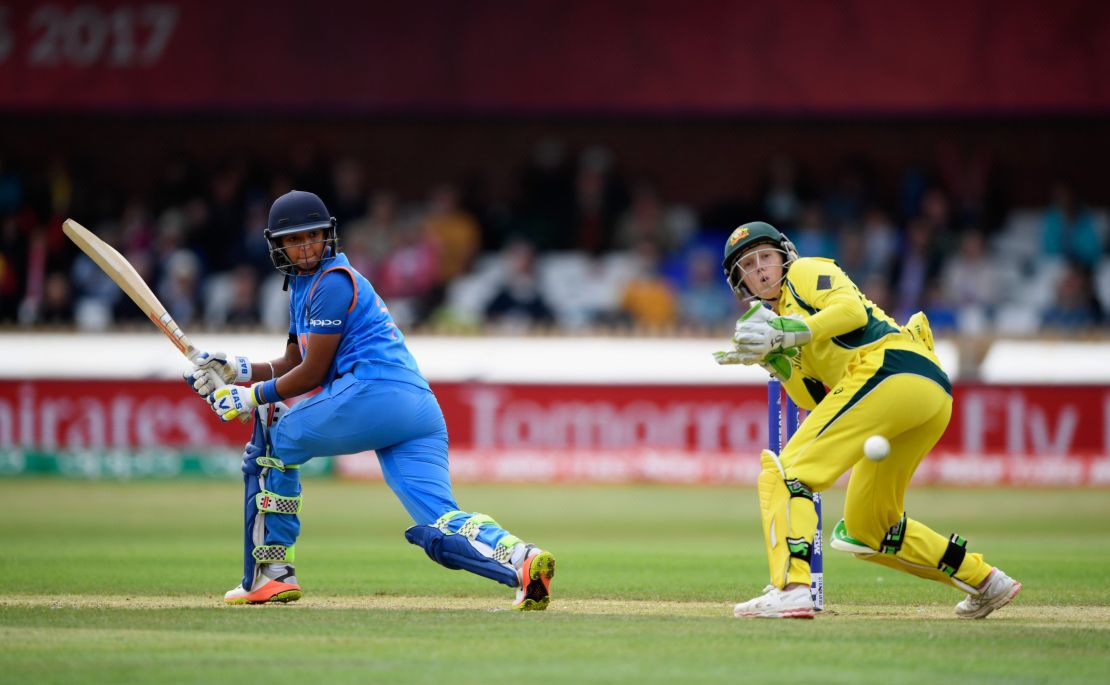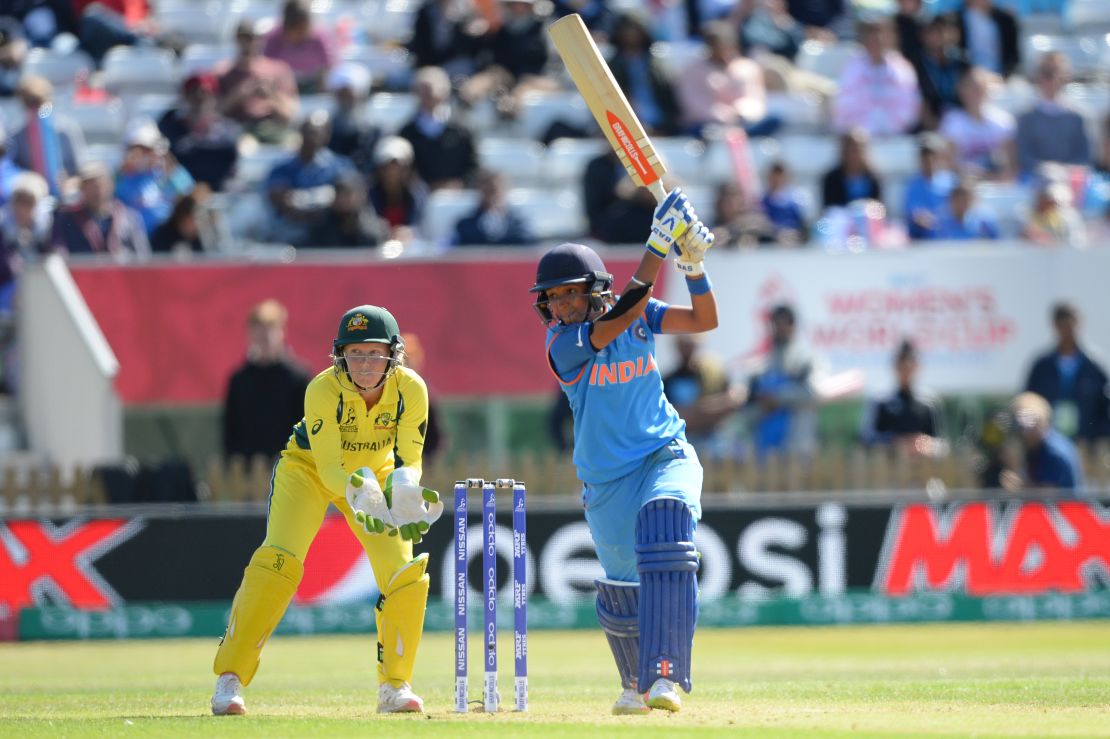Story highlights
Kaur's innings sent India to World Cup final
She hit unbeaten 171 from 115 balls
India play England in Sunday's showpiece
India aiming to lift trophy for first time
If you hadn’t heard of Harmanpreet Kaur on Thursday, you will have by today.
The Indian women’s cricketer drew worldwide acclaim for her historic 171 not out against Australia to send her country through to only its second ever Women’s World Cup final.
It’s an innings that has been compared to some of the best in one-day international history, including Kapil Dev’s 175 for India against Zimbabwe during the men’s World Cup in 1983.
Only three players in the history of the competition have recorded a higher innings score.
The congratulatory tweets, phone calls and text messages have flooded her phone in the hours since. “It’s been crazy,” she laughs.
Some of the biggest names in cricket have taken the time to contact her, including men’s captain Virat Kohli and her idol Virender Sehwag.
But through all the fanfare and A-list sporting celebrities, there was one message she cherished most above all.
“My favorite congratulations came from my parents,” Kaur tells CNN from the team bus, as the squad travels down to London for Sunday’s final against England at Lord’s.

“To know that I’ve made them proud – and made the country proud – means so much.”
As a child, Kaur’s parents supported and encouraged her to pursue the “dream” she had of one day playing for her country.
When Kaur’s dad took her to play cricket, it was always against the boys. Even when she got to an academy, Kaur says she continued to play against the boys.
Though if she always harbored hopes of eventually wearing India’s iconic blue kit, surely even Thursday’s history-making innings were beyond her wildest dreams.
With her team faltering on 35-2 in the 10th over, Kaur made her way to the crease in an attempt to stabilize the batting and set a reasonable target for Australia to chase.
What followed was a performance of flair, elegance and incredible skill, as the 28-year-old eventually posted a score of 171 off just 115 balls, including seven sixes and 20 fours.
It proved to be a match-winning knock, as India amassed a total of 281-4. In reply, Australia were bowled out for 245.
While from the outside onlookers knew they were witnessing something truly special, at the crease Kaur says she was truly unaware as to the enormity of her achievement.

“At that moment in time I was just so focused on batting and playing the next ball. You don’t think about anything else really.”
She accepts the women’s game has languished for perhaps too long behind the men’s, partly due to the lack of flamboyance and characters at the crease.
But a new generation of female cricketers, now spearheaded by Kaur and her take on the Sehwag-inspired “see ball, hit ball” approach to batting, are beginning to change all that.

The fact remains, however, that England are favorites to lift the trophy. The hosts have prevailed in their previous two World Cup final appearances, beating New Zealand in 1993 and 2009.
India, conversely, has never tasted victory – they came closest in 2005, finishing runners up to Thursday’s beaten opponents Australia.
Kaur, though, believes her team has reason to be optimistic going into Sunday’s showdown at the home of cricket.
“We are confident going into the final,” she says. “We’ve beaten England in One Day (format) already this year so that helps us a lot.”
In fact, that defeat against India was England’s sole ODI defeat of 2017.
Visit cnn.com/sport for more news and videos
Kaur grew up idolizing India’s former captain Sehwag. Now she knows victory against England could make her and her teammates idols to millions.
“I think we’ve done really well to get to the final anyway,” she says. “But of course winning the final will provide a great opportunity to inspire the future generation of young girls in India.”
